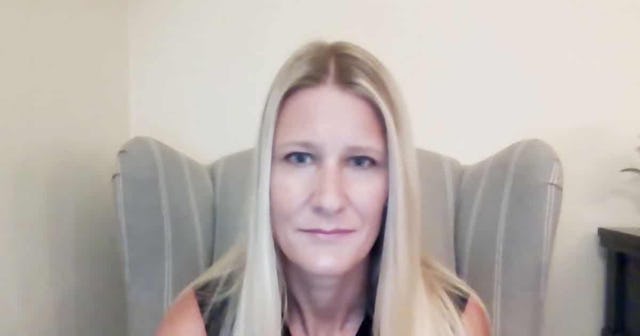Florida ER Doctor Loses Custody Of Daughter After Treating Coronavirus Patients

Dr. Theresa Greene, an ER doctor in Miami, Florida, recently lost temporary custody of her daughter while she treats patients battling COVID-19
Dr. Theresa Greene is an emergency room doctor, battling the COVID-19 pandemic on the front lines. She is also the mother of a 4-year-old daughter, and was recently forced to battle her ex-husband as well after he took her to court in order to gain temporary full custody of their child. Why? He claims that she is putting her daughter at risk of contacting the highly infectious and deadly virus. Last week, a judge ruled against her — but she isn’t done fighting.
Dr. Greene, who treats patients battling the novel coronavirus, usually shares custody of her daughter with her former husband, Eric Greene. However, despite testing negative for the virus earlier in the week, her ex requested and received an emergency order demanding sole custody until the coronavirus pandemic is over.
“I feel like the family court system now is stressing me almost more than the virus, I mean this is a very stressful time for healthcare professionals,” Dr. Greene said during an interview with 6 South Florida on April 10.
“In order to protect the best interests of the minor child, including but not limited to the minor child’s safety and welfare, this Court temporarily suspends the Former Wife’s timesharing until further Order of Court. The suspension is solely related to the outbreak of COVID-19,” Circuit Judge Bernard Shapiro wrote in his order.
“I was just shocked that the judge would take this stance without talking to medical experts and knowing the facts and take it so lightly, take my child from me and not think of the effect on her, her mental and psychological well-being,” Greene said in response.
On April 13, Dr. Greene told CNN’s New Day that she was appealing the emergency order.
“I think it’s not fair, it’s cruel to ask me to choose between my child and the oath I took as a physician,” Greene said. “I won’t abandon my team at work or the patients who will increasingly look to me to save their lives in the coming weeks, but it’s torture.”
She also told CNN that she felt the order discriminated against her as a divorced parent. “If I was married I’d be given the opportunity to go home to my child, no one could tell me I shouldn’t do that,” she explained.
Furthermore, she doesn’t feel as though she is putting her daughter at risk, as she is wearing full personal protective equipment (PPE) while treating patients and is taking the necessary precautions. “Yes it is severe and there is danger, and we’re being very careful,” she said. “We use every thing we can. I’ve actually worn equipment above and beyond to protect myself and my child.”
Her former husband responded via his attorney, Paul Leinoff, saying “Mr. Greene and I have the upmost respect for Dr. Greene’s commitment to her critical work during this pandemic.”
“The Court’s ruling was not intended to serve as a blanket rule, nor should it,” Leinoff added. “Pursuant to Mr. Greene’s request and as ordered by the Court, Dr. Greene is to be provided future make-up timesharing for each day missed during this challenging time and daily video communication with the child. We will continue to pursue ways to resolve this delicate situation and believe that a result can be achieved safely and fairly.”
While the Greene’s daughter doesn’t understand what is going on, she knows that her mother is struggling. “I want her when she grows up to be proud of me by abiding to the oath that I took when I went into medicine, but I also know that she needs me now,” she said.
Dr. Greene has won the support of many other medical professionals, parents, and even Mark Cuban. There is currently a Change.org petition fighting for her cause.
The American Medical Association also supports medical worker returning to their families after treating coronavirus patients, as long as they take precautionary measures. While they encourage doing “a bit of judicious social distancing,” they point out, it is important not to “separate ourselves completely from our families,” Mark Rupp, MD, professor and chief of the infectious diseases division at the University of Nebraska Medical Center (UNMC) in Omaha explained. “That’s just not something that’s necessary, nor do I think it is healthy for people’s mental health.”